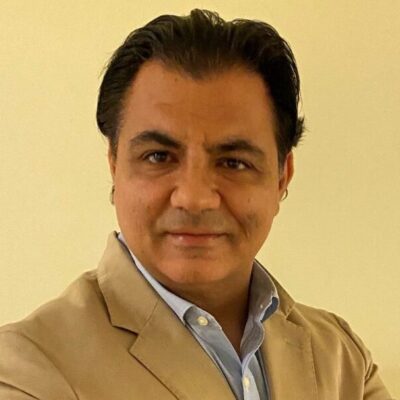
Not long ago, we had an interesting training session about ‘Emotional Intelligence’ where we evoked the Trust Equation. Trust falls under the relationships management category and your tendency to trust yourself and others. It also affects your emotional intelligence.
By Emile Fakhoury
Theoretically, the trust equation is straightforward = Sum of (Credibility + Reliability + Intimacy) divided by Self-Orientation. The Trust Equation has one variable in the denominator and three in the numerator.
Increasing the value of the factors in the numerator increases the trust level. Increasing the amount of the denominator - self-orientation -decreases the trust level.
Let us analyse each factor to understand it better:
Self-orientation, the sole denominator, is the most critical variable in the Trust Equation. The formula was deliberately developed this way.
In Sales, the best salespeople possess low self-orientation as they focus on the customer entirely and honestly for the added value to the customer.
The truth about successful sales is that you succeed more at sales when you stop trying to sell. When you only focus on helping prospective customers, they trust you more and buy more from you.
I have lived this experience when dealing with customers who are worried about dealing with sales and commercial teams and trust more the technical sections.
In such cases, I changed my focus to helping the customers find a resolution by not focusing only on the business gain; this made the client feel more comfortable and started trusting me more in the process, which eventually helped a lot in securing win-win deals that satisfied both parties.
The Trust Equation covers our day-to-day business-as-usual interactions. It is important to remember that these instances are almost entirely personal but contribute to our business success.
People like to work with people, not companies; they rarely give their trust to companies; they only trust other people.
While companies are often described as credible and reliable (the first two components of the Trust Equation), they develop the other factors of intimacy and self-orientation and make those companies successful.

From my ‘Emotional Intelligence’ sessions, I’ve learned that Trust is a key component in developing collaborative and supportive relationships.
An important part of leadership is recognising what level of Trust to place in different people.
Placing your belief or Trust in others is a powerful way to inspire people.
However, offering your full Trust unquestioningly has drawbacks. If you often over-trust people, they may undertake work they cannot compete effectively, they may be unable to meet your expectations, and you may feel disappointed in their performance.
Overall, trust in business and sales requires ‘strong’ scores on all four variables in the Trust Equation. That means high credibility, reliability and intimacy, and low self-orientation.
Living the four variables in the Trust Equation is the best way to increase trustworthiness.
The Trust Equation provides an analytical and actionable framework to help companies and individuals improve their businesses and lives.

Impressive!
Thank you JB !
I loved the idea of working on improving once credibility,being reliable and intimate.Reduce focus on self interest and thereby being more trustful and productive.Thankyou Emile for the insights.
Appreciate Mohamad Ali !
Awesome Emile! I've seen you walk the talk in your everyday dealings and exhibiting the element of trust you mentioned in your article.
Appreciated Beena your usual support!
Good piece.
thank you Carl!